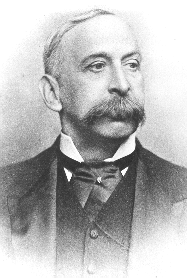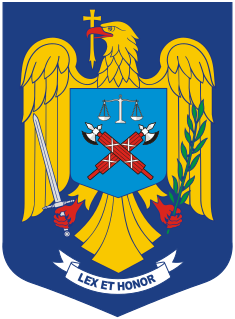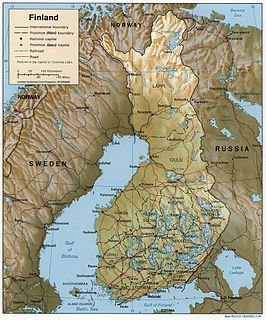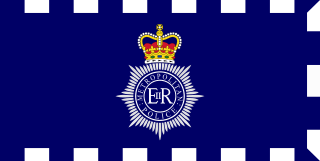
The Serious Organised Crime Agency (SOCA) was a non-departmental public body of the Government of the United Kingdom which existed from 1 April 2006 until 7 October 2013. SOCA was a national law enforcement agency with Home Office sponsorship, established as a body corporate under Section 1 of the Serious Organised Crime and Police Act 2005. It operated within the United Kingdom and collaborated with many foreign law enforcement and intelligence agencies.

In the United Kingdom and many former British colonies, Criminal Investigation Department (CID) is the generic name for the branch of a police force to which most plainclothes detectives belong. A force's CID is distinct from its Special Branch.

Eurojust is an agency of the European Union (EU) dealing with judicial co-operation in criminal matters among agencies of the member states. It is seated in The Hague, Netherlands. Established in 2002, it was created to improve handling of serious cross-border and organised crime by stimulating investigative and prosecutorial co-ordination.
SO11 or Specialist Operations - Intelligence is a defunct branch of Scotland Yard. The unit was tasked with gathering intelligence for the police.
The Specialist, Organised & Economic Crime Command is a unit within the Gangs and Organised Crime group of Specialist Crime & Operations within London's Metropolitan Police Service. The unit's main responsibility is to both investigate and take steps to prevent fraud, along with a wide range of other fraudulent crimes which require specialist knowledge and training to investigate. The unit was previously known as the Fraud Squad, or by its previous Specialist Operations designation, SO6.
The Specialist Operations directorate is a unit of the Metropolitan Police Service of London, UK responsible for providing specialist policing capabilities including national security and counter-terrorism operations. The Specialist Operations Directorate is led by Assistant Commissioner Neil Basu.

The Directorate of Special Operations was an independent multidisciplinary agency that investigated and prosecuted organised crime and corruption. It was a unit of The National Prosecuting Authority of South Africa. Its staff of 536 consisted of some of the best prosecutors, police, financial, forensic and intelligence experts in the country. It was officially disbanded late in January 2009 by South African President Kgalema Motlanthe, after coming into conflict with the (then) head of the South African Police Service, Jackie Selebi.

The Romanian Police is the national police force and main civil law enforcement agency in Romania. It is subordinated to the Ministry of Administration and Interior and it is led by a General Inspector with the rank of Secretary of State.
The Serious and Organised Crime Command is a unit of the Metropolitan Police in Greater London, United Kingdom. It is part of the Specialist Crime Directorate and is divided into 10 units:
The Clubs & Vice Unit was an Operational Command Unit of London's Metropolitan Police which provides advice and practical support to other units in the Metropolitan Police concerning the policing of nightclubs, vice and obscene publications.
Jamaica is a source, transit, and destination country for adults and children trafficked for the purposes of sexual exploitation and forced labor.

The Metropolitan Police Service of Greater London is organised into four main directorates, each with differing responsibilities. These are Frontline Policing, Met Operations, Specialist Operations and six civilian staffed support departments under the umbrella of Met Headquarters. Each is overseen by an Assistant Commissioner, or in the case of a support department a director of police staff which is the equivalent civilian grade.

Human trafficking in Australia is illegal under Divisions 270 and 271 of the Criminal Code (Cth). In September 2005, Australia ratified the Protocol to Prevent, Suppress and Punish Trafficking in Persons, especially Women and Children, which supplemented the United Nations Convention against Transnational Organized Crime. Amendments to the Criminal Code were made in 2005 to implement the Protocol.

The National Crime Agency (NCA) is a national law enforcement agency in the United Kingdom. It is the UK's lead agency against organised crime; human, weapon and drug trafficking; cyber crime; and economic crime that goes across regional and international borders, but can be tasked to investigate any crime. The NCA has a strategic role in which it looks at the bigger picture across the UK, analysing how criminals are operating and how they can be disrupted. To do this it works closely with regional organised crime units (ROCUs), the Serious Fraud Office, as well as individual police forces.
Peru is a source, transit, and destination country for men, women, and children subjected to trafficking in persons, specifically forced labor and forced prostitution. Several thousand persons are estimated to be subjected to conditions of forced labor within Peru, mainly in mining, logging, agriculture, brick making, and domestic servitude. Many trafficking victims are women and girls from impoverished rural regions of the Amazon, recruited and coerced into prostitution in urban nightclubs, bars, and brothels, often through false employment offers or promises of education. Indigenous persons are particularly vulnerable to debt bondage. Forced child labor remains a problem, particularly in informal gold mines, cocaine production, and transportation. There were reports the terrorist group Sendero Luminoso, or Shining Path, recruited children as soldiers and drug mules. To a lesser extent, Peruvians are subjected to forced prostitution in Ecuador, Spain, Italy, Japan, and the United States, and forced labor in Argentina, Chile, and Brazil. Peru also is a destination country for some Ecuadorian and Bolivian females in forced prostitution, and some Bolivian citizens in conditions of forced labor. Child sex tourism is present in Iquitos, Madre de Dios, and Cuzco. Traffickers reportedly operate with impunity in certain regions where there is little or no government presence.
Human trafficking in Brazil is an ongoing problem. Brazil is a source country for men, women, girls, and boys subjected to human trafficking, specifically forced prostitution within the country and abroad, as well as a source country for men and boys in forced labor within the country. In 2012 there was a soap opera made about Human trafficking named Salve Jorge.
Victims of human trafficking in Ecuador are generally women and children trafficked within the country from border and central highland areas to urban centers for commercial sexual exploitation, as well as for involuntary domestic servitude, forced begging, and forced labor in mines and other hazardous work. Ecuador prohibits human trafficking in its penal code, and penalties are commensurate with other serious crimes. Despite robust law enforcement efforts to combat trafficking, conviction rates remain low. The Ecuadorian government has ensured trafficking victims' access to legal, medical, psychological, and shelter services, in large part through its partnership with a network of NGOs. The government has also undertaken advertising campaigns against human trafficking, particularly child labor and child sex tourism. U.S. State Department's Office to Monitor and Combat Trafficking in Persons placed the country in "Tier 2" in 2017.

Human trafficking is the trade of humans that can occur internationally or within a nation, often with a goal of sexual slavery, forced labor, commercial sexual exploitation or the removal of organs. Newest forms of human trafficking include ova and surrogacy trade. Persons that are victims of human trafficking are usually recruited or taken by the means of the threat or use of force, or by fraud, kidnapping, deception, abuse of power or a vulnerable position with the aim of exploitation. Some of the biggest reasons for human trafficking are poverty, the global level of gender inequality and the feminization of poverty as well as different kinds of conflicts, cataclysms, religious and ethnic persecutions, violence and discrimination.

Kevin Hyland, OBE is the United Kingdom’s first Independent Anti-Slavery Commissioner, leading efforts to tackle slavery and human trafficking. He was formerly head of the London Metropolitan Police Service’s Human Trafficking Unit.










